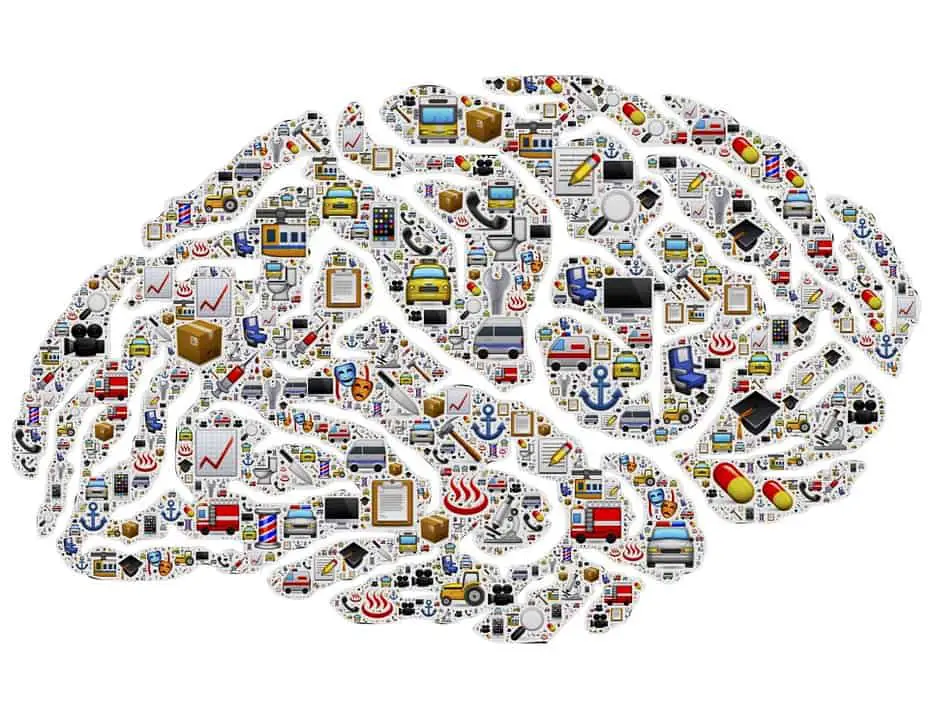Table of Contents
*This post may contain affiliate links. As an Amazon Associate we earn from qualifying purchases.
The mind is a powerful tool, but sometimes, it can be wrong. We tend to think that the brain is more logical, which is why we trust it unconditionally. The mind can be wrong at times, and that is why we need to start paying attention to our thoughts. The primary role of the brain is to warn us of impending danger through fear, help us choose suitable mates, and solve problems we encounter daily. Cognitive errors occur when the brain connects ideas, consequences, thoughts and actions when there is no clear connection. Two coincidental thoughts may cross the mind, and the brain makes an erroneous connection between the two.
What Are Cognitive Errors?
Cognitive errors, also known as cognitive distortions, are false and biased ways of thinking that develop over time, either about ourselves or the world, in general. They are irrational thoughts with a subtle pattern that is difficult for someone to notice when they occur. It is like conditioning of the brain to believe something that is not true. They are dangerous because first, they almost always go undetected, and secondly, one only realizes the cognitive errors when it is almost too late to change.
Why Do Our Brains Create Cognitive Errors?
Sometimes, it is not just the brain that is at fault. When growing up, one may learn to have negative thoughts from socialization. The brain then adopts the patterns that it then uses to connect information. Cognitive errors have been linked to psychological damage and contribute to mental health issues such as depression, anxiety, and many more. It is unfortunate that most cognitive errors develop at a young age based on the environment in which we grow up. People develop cognitive errors from their parents, relatives, neighbors, teachers and society as a whole.
Cognitive Errors You Should Be on the Watch For
Polarized/ All-or-Nothing Thinking
For some people, there are only two ways of doing anything. It is either wrong or right, good or bad, success or failure. In these cases, the mind only sees either black or white in any given scenario and cannot recognize shades of grey.
Overgeneralization
This cognitive error is where the mind takes one experience and generalizes it to fit other experiences. For example, words like “I always” or “I never” are forms of generalization. Here, people use what has happened in the past as a general reference point to assume things about the future.
Mental Filtering
The mind, in this case, chooses to ignore vital information from a situation. We tend to focus on the bad rather than the good, or what went wrong rather than what is working. The mind filters reality with a flawed obsession with the negative that hinders us from looking beyond the adverse circumstances.
Jumping to Conclusions
This cognitive error tends to make false assumptions on the future (predictive thinking) or making irrational decisions on what another person is thinking (mind reading). These assumptions are usually not backed by facts or any conclusive evidence, but by emotions and opinions. The brain here makes conclusions based on general feelings towards something rather than rationale.
Personalization
This is where the person assumes responsibility for anything that goes wrong in their life (victim of circumstances). The person feels like they are always to blame, even if other factors played a hand in the problem.
Catastrophizing
Here, the cognitive error involves blowing the issues at hand out of proportion. The brain sees a problem, big or small, but makes it seem more significant than it is. Over-thinking takes over and forces you to focus on the problem rather than solutions.
Labeling
The brain takes something that is true and distorts it to suit our belief systems based on past experiences, the society’s definition, or our own opinions. The labels are not based on facts and are often untrue.
Shoulding and Musting
Shoulding and musting are cognitive errors that embody unrealistic expectations on ourselves or others based on what we think is right. Words such as “I must,” “You must,” “I should,” and “You should” are indicators of this cognitive error. It places you and others under pressure to reach the high standards, which is just a way to set you up for failure. No matter how much effort the person puts in, it will never match their expectations because they are unrealistic.
Emotional Reasoning
Here, cognitive error encourages decision-making based on emotions. We first consider how we feel before deciding how to perceive or interpret a situation. Mood and emotions change all the time, and it would be wrong to base important decisions on them.
Magnification and Minimization
Magnification and minimization are cognitive errors that make a person downplay their positive attributes and magnify those of another person to lower other people’s expectations towards them. This distortion is a form of imposter syndrome where one is afraid that people may find out they are not as good as they are thought to be.
Control Fallacies
This cognitive error occurs in two ways; one, believing that we are victims of fate and we are not in control of our lives, and two, we are in control of everything, including the people around us. This is a false belief because no one is completely powerless over themselves, and no one is in complete control of everything at all times. Some people cannot accept that there is room for several possibilities in any scenario.

How to Fix Cognitive Errors
Pinpoint the Cognitive Error
For you to fix the problem, you have to identify what it is. Look at the signs in your thoughts, in your behavior, and in the way you view situations. It will take a while, and you will have to keep a record of the cognitive errors afflicting your mind
Look for Evidence
After taking down all the possible distortions, you have to dig deep and find the basis of the biases. Find out exactly what is causing you to feel the way you do. For example, “I am a failure” is an opinion that is wrong when you realize that you have just failed one exam. Failing one exam cannot define you as a failure. Replace opinions with facts.
Double Standard Method
We tend to hold ourselves to a higher standard than the people around us. We judge ourselves harshly when we make the smallest mistakes. The key to eliminating this particular cognitive error is to use the same standards we apply to everyone else on ourselves, too. Be kind and positive when talking to yourself as you would if you were talking to a friend.
Experimental Method
You can use the hypothesis method used in experiments to test irrational thoughts you may have. Take a thought like “I am a failure,” and put it to the test. Ask yourself whether this is a constant feeling, or if it is just a one-time thing that crossed your mind because you failed once. Ask yourself if there is any way you can improve your grade. Even if the test was necessary, how can you make up for it in the future? This method is solution-oriented rather than problem-oriented.
Survey Method
The Survey Method involves talking to other people to find out if they experience the same things you are experiencing. If they do, how do they manage their irrational thoughts? Talking to other people will help you desensitize your problems.
Semantic Method
Here, a person decides to substitute negative words with positive statements. Words like “may” or “would” can be used instead of should statements. Additionally, the positive statements should replace negative ones when describing yourself or others. Semantics can be the difference between cognitive error and a positive way of life.
Re-attribution
Cognitive errors such as personalization and blaming cause a person to blame themselves for all the misery they are experiencing. However, in re-attribution, the person looks into the external factors that may have contributed to the issue at hand. It encourages the person to not focus on blaming themselves. Instead, they should be looking for means to resolve the problem first. It is also not a means to skip out on responsibility. It just ensures that you do not carry the burden by yourself because doing so can negatively affect your mental health.
Cost-Benefit Analysis
This method involves acknowledging the brain and its cognitive errors. It takes the thoughts, opinions and ideas and weighs their benefit to the person. The person asks themselves whether their thoughts will benefit them or hurt them. Making a list of both the advantages and disadvantage of holding on to the thought, they can be able to make an informed decision whether to let it go or keep it.
Conclusion
Cognitive errors are learned, and they can be damaging to a person who holds on to them. This may lead to mental health issues. Fortunately, a person can be deprogrammed from cognitive errors. When you notice their signs and symptoms and make efforts towards self-improvement, you will overcome cognitive errors.

